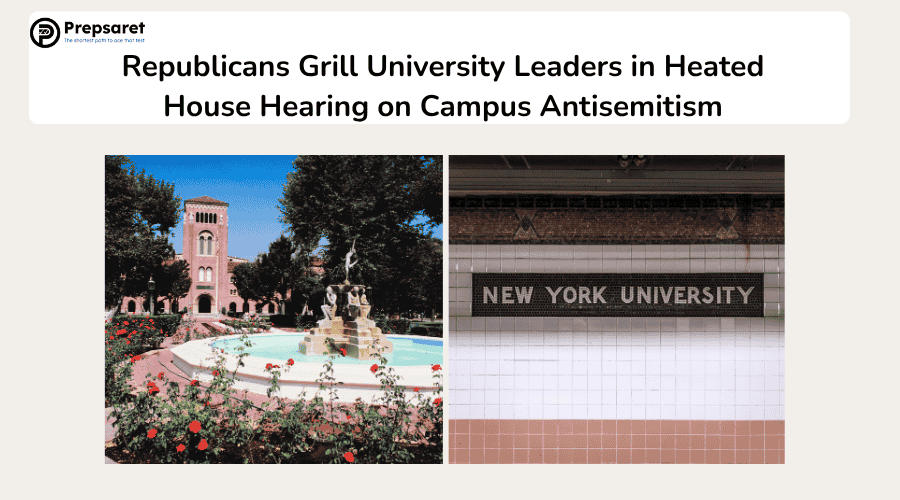Key Points:
- Leaders of Georgetown, UC Berkeley, and CUNY testify on efforts to combat antisemitism while defending academic freedom.
- Republicans accuse universities of failing to protect Jewish students and allowing bias to fester on campuses.
- Tense exchanges highlight growing political scrutiny of higher education amid rising campus tensions.
University Leaders Defend Policies Amid Sharp Criticism
The leaders of Georgetown University, the University of California, Berkeley, and the City University of New York (CUNY) faced tough questioning from House Republicans on Tuesday over how their campuses handle antisemitism, reflecting the latest chapter in Congress’s deepening scrutiny of higher education.
During a three-hour hearing by the House Committee on Education and the Workforce, Republican lawmakers accused the universities of allowing antisemitic sentiments to spread unchecked, echoing former President Donald Trump’s criticisms that universities have become “infested with radicalism.”
“The genesis of this antisemitism, this hatred that we’re seeing across our country, is coming from our universities,” said Rep. Burgess Owens, R-Utah, setting the tone for the hearing.
Georgetown interim President Robert Groves, UC Berkeley Chancellor Rich Lyons, and CUNY Chancellor Félix Matos Rodríguez defended their institutions, emphasizing their commitment to addressing discrimination while maintaining free speech protections. Groves stated that Georgetown takes disciplinary action when antisemitic behavior affects students directly but also highlighted the importance of safeguarding First Amendment rights on social media.
Chancellor Lyons argued that expressing pro-Palestinian views should not automatically be labeled antisemitic, pushing back against lawmakers’ assertions that campuses are primary sources of hate. Matos Rodríguez reiterated that antisemitism has no place at CUNY and emphasized that the institution investigates any policy violations.
Political Tensions and Free Speech Clash
Tuesday’s hearing is the ninth in a series of Republican-led investigations into campus antisemitism, sparked by a rise in protests and tensions following Hamas’s October 2023 attacks on Israel. Previous hearings contributed to the resignations of leaders at Harvard and the University of Pennsylvania after their testimony drew widespread backlash.
The hearing saw periodic disruptions from pro-Palestinian protesters, who were removed by Capitol police, underscoring the broader tensions surrounding the Israel-Palestine conflict on campuses.
Republicans pressed the university leaders on whether faculty had faced consequences for allegedly antisemitic actions or statements. Rep. Elise Stefanik, R-N.Y., challenged CUNY’s chancellor over the employment of a law professor involved in defending a Palestinian activist targeted by Trump-era deportation efforts, pressing whether such staff should remain employed.
Committee Chair Rep. Tim Walberg, R-Mich., warned universities that tolerating antisemitic behavior from faculty, accepting certain foreign funding, or allowing unchecked activism could have consequences, stating, “But we will see today they do so at their own risk.”
Democrats, meanwhile, criticized the hearings as performative, arguing that the sessions serve as political theater rather than addressing the safety of Jewish students. “They have turned this hearing room into a kangaroo court,” said Rep. Mark Takano, D-Calif., accusing Republicans of leveraging legitimate concerns for partisan purposes.
As Congress continues to probe universities, Tuesday’s session demonstrated the complex challenge of addressing antisemitism while balancing the principles of academic freedom and free speech, leaving universities under intensifying pressure to navigate campus tensions amid national political scrutiny.

